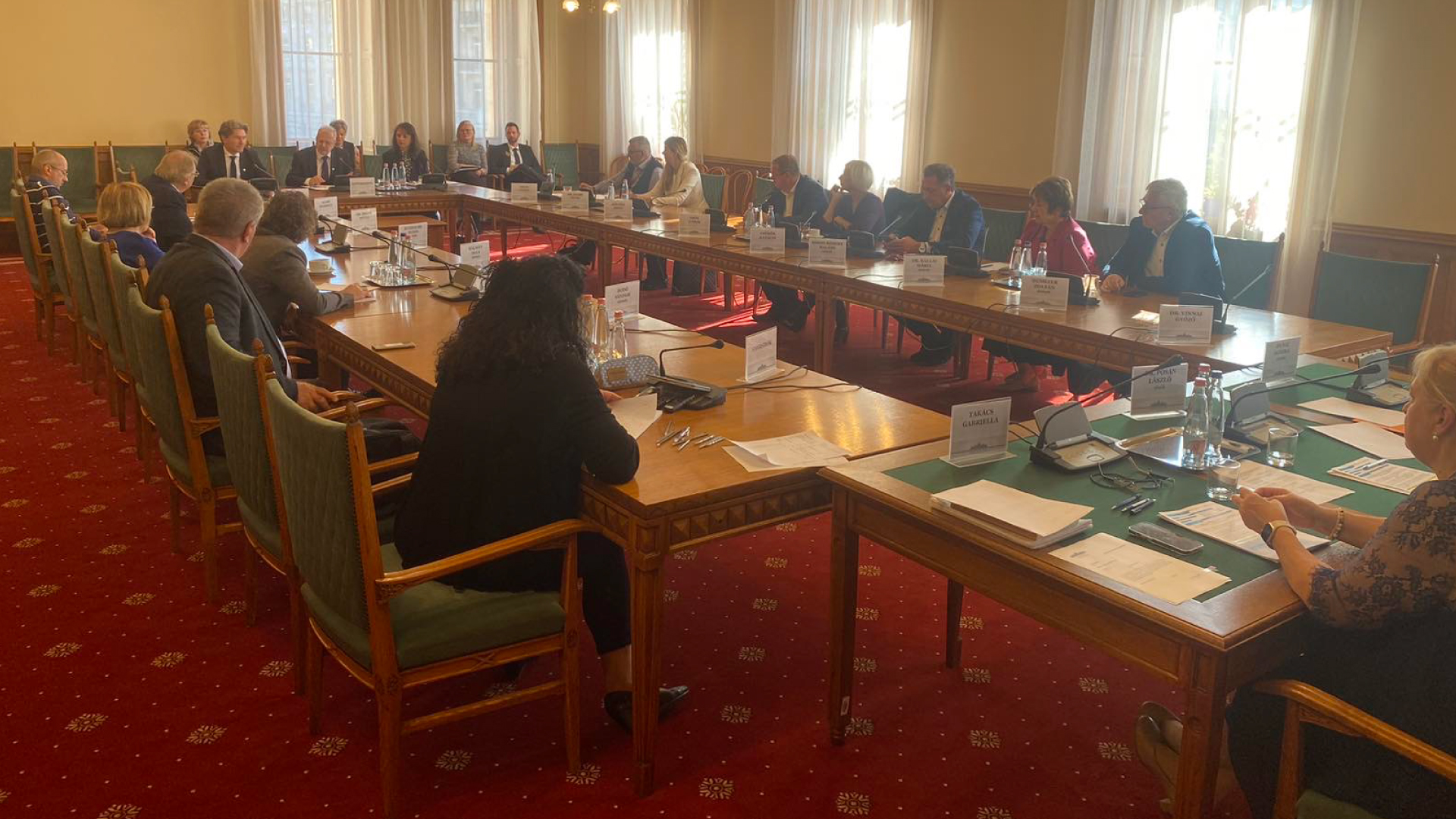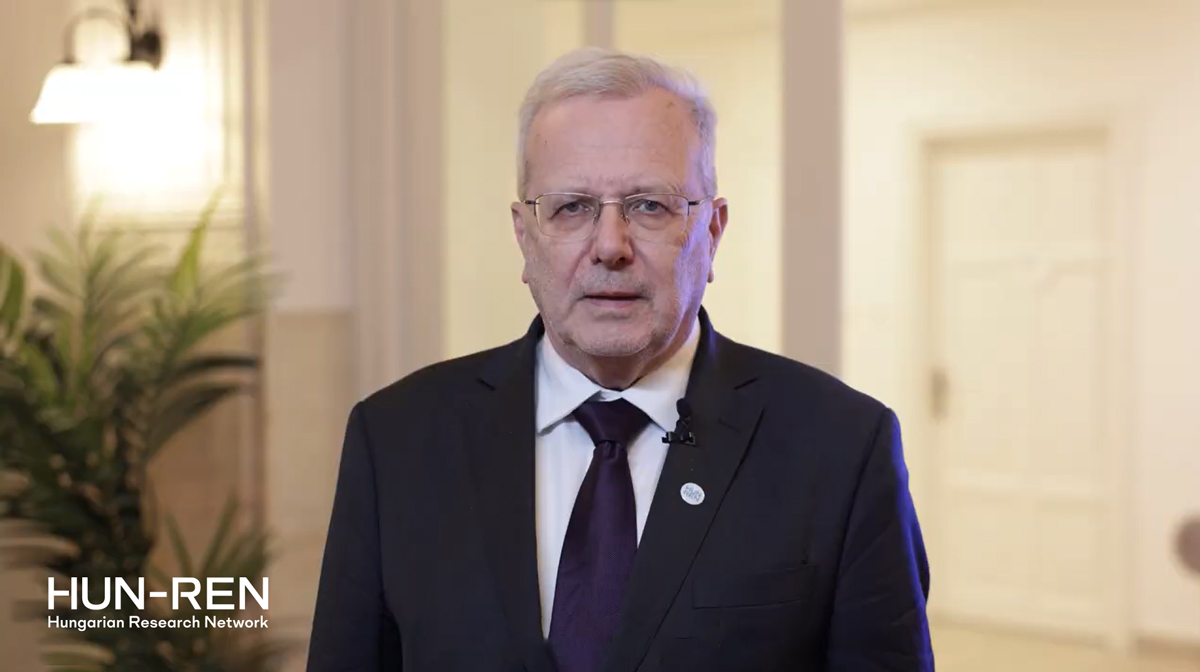Hungarian Parliament's Committee on Culture Adopts the 2021–2022 Report of the Research Network
The session was attended by HUN-REN President Balázs Gulyás, CEO Roland Jakab, and Katalin Hegedüsné, Chief of Cabinet to the President
The HUN-REN Hungarian Research Network – formerly known as the Eötvös Loránd Research Network – was established as an independent central budgetary institution in 2019 and is required to report on its activities to the relevant parliamentary committee every two years. At its most recent session, members of the Hungarian National Assembly’s Committee on Culture discussed the parliamentary report on the operations of the Eötvös Loránd Research Network for 2021–2022. President Balázs Gulyás informed attendees that he had assumed leadership of the Network on 1 May 2023; during the reporting period, the organisation was led by former President Miklós Maróth, with whom he continues to maintain an active collegial relationship.

The President reported that, as a new leader, he had prioritised organising international evaluations with the involvement of eminent foreign experts to assess the network's performance and standing in the global scientific arena. With the evaluations completed this autumn, the main tasks for HUN-REN's organisational renewal, the essential steps to be taken, and the overarching goal have all become clear: to ‘preserve and elevate’ the research network, enabling it to align with the most competitive research organisations, Balázs Gulyás emphasised. “Our research community has the necessary talent and expertise, though organisational efficiency must be improved,” he added. In response to a question from a Committee member, he expressed confidence that the renewal would lead to a higher proportion of prestigious international grant recipients, an increase in the number of researchers publishing, and a shift in the prevailing mindset at research sites—with more and more researchers adopting a mindset focused on societal impact and the value chain.
President Balázs Gulyás stressed the importance of national research, adding that it is essential to showcase high-quality national research and to communicate its results both nationally and internationally. He noted that Central and Eastern European countries consistently and regularly publish the results of their national research, which is also expected of Hungarian humanities scholars.
Some of the attending members expressed interest in the innovation achievements from the two years reported and the methods of scientific dissemination, while others asked the President for his opinion on measuring the performance of research sites, building international relations, and holding research sites accountable. The President of HUN-REN provided detailed answers to all questions, including those not related to the specifics of the 2021–2022 report. László Pósán, Chairman of the Committee, reminded the members and the proposer that the answers concerning organisational activities after 2022 would be voluntary. Thanks to Balázs Gulyás, the Hungarian National Assembly’s Committee on Culture received a truly comprehensive report that also covered the HUN-REN renewal process.
Among this year's tasks for the HUN-REN leadership, the President discussed the establishment of a framework to ensure effective and flexible operations, including the development of a predictable, long-term, competitive, and performance-based funding system. This system will make it possible to further strengthen research excellence, increase research collaborations, and better utilise the potential of research sites—ultimately ensuring a more efficient and transparent use of stakeholders' funds for the benefit of society.
The leaders of HUN-REN are committed to the renewal of the Hungarian Research Network, aiming to position HUN-REN among the most effective research organisations and to put its capacities and knowledge pool even more at the service of national priorities and the future of Hungary.

